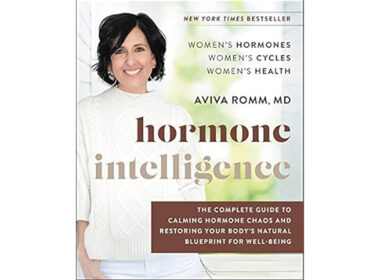Today, numerous young women are put on birth control at early ages for all range of issues. For me, it was a doctor’s push of hormonal contraception that actually led me to the natural methods of fertility awareness.
When I was 15 years old, I asked my mom to switch my care to a female doctor. My body was changing rapidly, and not only was I self-conscious about returning to a male pediatrician to discuss menstrual cycles and boys, but I also believed that a female doctor would be more attuned to my needs as I became a woman.
I was hopeful about meeting with her, and I looked forward to having some of my concerns addressed in relation to the painful menstrual cramps and extreme anxiety I was experiencing monthly. When I began to bring up these needs up to her, however, she interrupted me and asked me if I had considered birth control. Before I could open my mouth to reply, she launched into a 10-minute speech about the benefits of birth control.
I tried to stop her to explain that not only was I not sexually active at 15, but that I also wanted to understand what was going on with my body. Specifically, a hormone specialist I had seen was concerned about my family’s history with thyroid problems and what she believed to be an estrogen imbalance in my body—but I never received the chance to tell my newly appointed doctor any of this.
In one breath, my doctor effectively told me why I needed birth control without actually hearing me or taking a moment to consider my concerns and individual needs. She took away the personal aspects of my care and gave me what she deemed to be a blanket solution to all of my bodily ailments.
I felt embarrassed and hurt. I was just beginning to take responsibility for my body and its changes, but instead of being helped, I felt like I had an ill-fitted bandage being put on an injury.
Soon after this appointment, I began charting my cycle with Fertility Awareness-Based Methods (FABM). I was told by several women that this was an effective way to become more aware of my body and take control of my health. At this time, however, I was really only tracking so that I wouldn’t be surprised by my period coming.
It wasn’t until I was 19 that a roommate showed me the literature, and explained that FABMs are so much more than a period-watcher. She taught me how to take my temperature every morning and to pay attention to the way my body communicated. I realized that this was the awareness and control that I had desired.
Back in the Driver’s Seat
It has come to be expected that when you enter a doctor’s office after having your first period, your treatment changes. But my experience left me concerned: Perhaps the reason young girls are going on birth control at younger and younger ages because they aren’t being given alternative options.
I’m concerned that if birth control has become the catch-all solution for multiple pubescent needs, doctors are en masse ignoring the individual issues of their young patients. It took a long time for me to find a doctor who would listen to my requests for answers and for options specific to my body’s function and needs.
Birth control may be easy to prescribe, but as patients, we deserve to know more.
As women, we should strive to be drivers not passengers when it comes to our healthcare needs, and hold our physicians up to a high standard of care. Without realizing it, this doctor stripped me of my autonomy and self-responsibility by taking the individuality out of my care. It’s important to be heard, but it is also important to know how to speak up and insist that your doctor give you all of the options.
Charting with Fertility Awareness-Based Methods gave me the information that I had craved and the answers to questions that my doctor had refused to even hear. It helped me to appreciate how my body functioned and to be aware when something was wrong and needed to be addressed. I no longer felt out of control and I regained the power to take care of my individual needs and concerns, hormonal balance included.
I now encourage anyone who brings up the topic of hormonal imbalance to explore FABMs. In my experience, it brings freedom and independence and gives me a deeper understanding of my needs.







